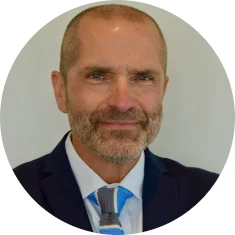"Thanks for the Nightmares!" A Deep Dive into Technology Crime
/In a session that had many virtual attendees joking about having nightmares tonight, going completely off the grid and hiding under blankets, Walt Manning, CEO of Techno-Crime Institute, told a story about darknet, cryptocurrency, encrypted messaging apps, burner phones, ransomware and more at the 33rd Annual ACFE Global Fraud Conference.
In his session, "You're in Charge: Are You Ready for a Techno-Crime Challenge," Manning discussed the above and offered this piece of advice: "This is not the fraud of the future - this is the fraud of right now. And if you're not prepared, you need to be prepared because it's already happening."
Read More








